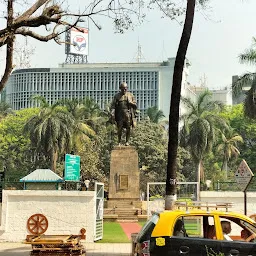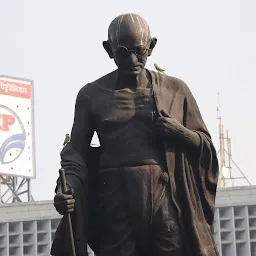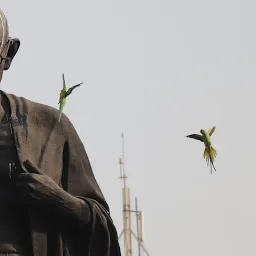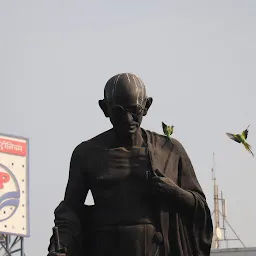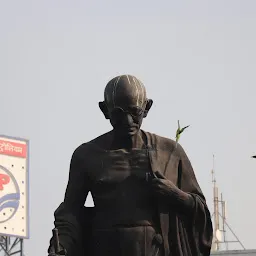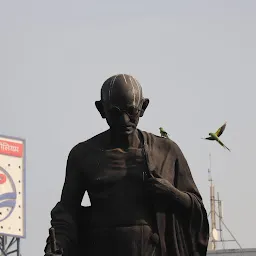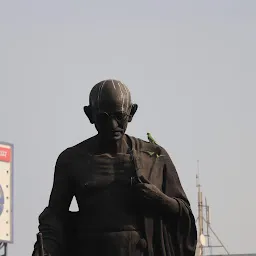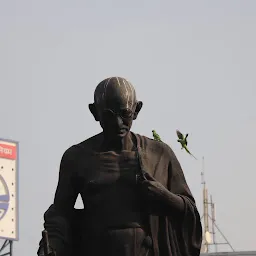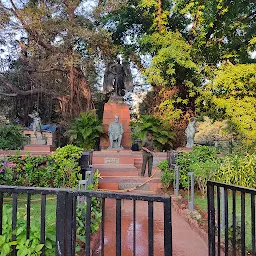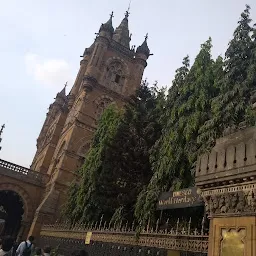Mahatma Gandhi Garden
WRHF+9X9, Churchgate, Mumbai, Maharashtra 400020, IndiaMahatma Gandhi Garden is a garden located in Mumbai, Maharashtra. The average rating of this place is 4.20 out of 5 stars based on 18 reviews. The street address of this place is WRHF+9X9, Churchgate, Mumbai, Maharashtra 400020, India. It is about 0.50 kilometers away from the Churchgate railway station.
- Where is Mahatma Gandhi Garden located?
- Mahatma Gandhi Garden is located at WRHF+9X9, Churchgate, Mumbai, Maharashtra 400020, India.
- What is the nearest railway station from Mahatma Gandhi Garden?
- Churchgate railway station is the nearest railway station to Mahatma Gandhi Garden. It is nearly 0.50 kilometers away from it.
Aryan Chile 12 months ago
Mahatma Gandhi, born Mohandas Karamchand Gandhi on October 2, 1869, in Porbandar, British India (now Gujarat, India), was a prominent leader in the Indian independence movement against British rule. He is widely regarded as one of the most influential figures in the history of India and a symbol of nonviolent resistance.
Gandhi's philosophy and principles of nonviolence, civil disobedience, and peaceful protest played a significant role in India's struggle for independence. He advocated for the use of peaceful means to achieve social and political change, inspiring millions of people around the world with his ideas.
Here are some key points about Mahatma Gandhi:
1. Early Life and Education: Gandhi was born into a Hindu merchant caste family. He studied law in London, England, and became a barrister. During his time in England, he became exposed to various philosophies, including ideas of freedom, justice, and equality.
2. Nonviolent Resistance: Gandhi developed the concept of Satyagraha, which means "truth-force" or "soul-force." It emphasized the power of nonviolent resistance and passive civil disobedience as a means to achieve political and social change.
3. Role in Indian Independence: Gandhi led numerous nonviolent campaigns and protests against British rule, such as the Salt March in 1930, where he and his followers marched to the Arabian Sea to produce salt in defiance of the British salt tax. His efforts and leadership played a pivotal role in India gaining independence in 1947.
4. Principles and Beliefs: Gandhi emphasized the importance of truth, nonviolence, simplicity, and self-discipline. He believed in the equality of all people, regardless of their social or economic background, and worked towards the eradication of social evils like untouchability.
5. Influence on Civil Rights Movements: Gandhi's philosophy of nonviolence and civil disobedience had a profound impact on various civil rights movements around the world, including the African-American civil rights movement led by Martin Luther King Jr.
6. Assassination: On January 30, 1948, Mahatma Gandhi was assassinated by Nathuram Godse, a Hindu nationalist who disagreed with Gandhi's tolerant views towards other religions.
Mahatma Gandhi's legacy as a leader, philosopher, and advocate for peace continues to inspire people globally. His teachings on nonviolence, truth, and social justice remain relevant and influential to this day.
Radhika Arora 60 months ago
5 stars for bird population..... Love the parakeets dancing around the statue....
SHIVAM BHARTI 72 months ago
Good place and concentrate for meditation in morning time
- Address
- WRHF+9X9, Churchgate, Mumbai, Maharashtra 400020, India
